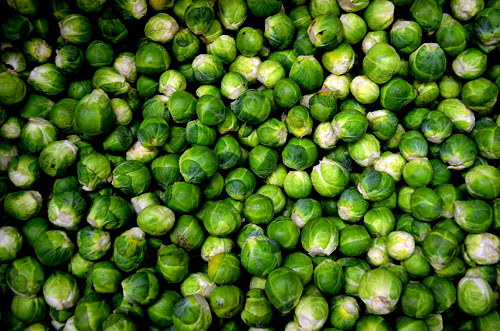
The Brussels Sprout is a cruciferous vegetable. It’s in the same family as broccoli, kale, collard greens and cabbage. It grows in a number of places ranging from California to New York. The plants prefer a cooler temperature. And it’s said that for home growers, Brussels Sprouts taste best right after the first frost.
Health Benefits
Cruciferous vegetables provide an abundance of health benefits. In fact, health experts recommend eating them a few times a week. They lower cholesterol and are packed with fiber. They’ve also been shown to help fight and prevent many types of cancer including bladder, breast, colon, lung, prostate, and ovarian cancer. It has anti-inflammatory properties as well as anti-oxidants.
Brussels Sprouts are high in vitamin K which has been shown to improve bone health and prevent bone loss and fractures. It’s also high in vitamin C, folate, fiber, and vitamin A. It also has omega 3 fats, protein, and calcium. A cup of Brussels sprouts is a mere 60 calories and contains 80% of the RDAs recommendation for vitamin C.
How to Eat
Brussels Sprouts are a bit too chewy to eat raw. However, they’re delicious when sautéed in a bit of oil or fat. Try them sautéed in olive oil or bacon fat and seasoned with salt, pepper, and a little bit of maple syrup. They’re also tasty with nuts or cheese. You might enjoy them boiled and tossed with vinegar and oil.
No comments:
Post a Comment